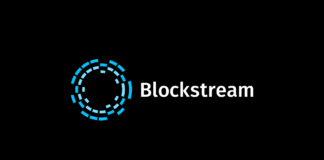In a landmark move, the Hawaii Department of Commerce and Consumer Affairs (DCCA) has announced that crypto firms operating within the state will no longer require a Money Transmitter License (MTL) starting June 30, 2024. This strategic decision follows the conclusion of the Digital Currency Innovation Lab (DCIL), a collaborative regulatory sandbox project launched by the DCCA in 2020. The DCIL’s thorough evaluation revealed that the existing MTL framework did not adequately accommodate the unique nature of cryptocurrency activities, prompting the DCCA to exempt crypto businesses from this licensing requirement.
Regulatory Sandbox Paved the Way
The DCIL acted as a controlled environment where crypto firms could test and operate under the DCCA’s supervision. This collaborative project allowed the regulator to gain a deeper understanding of the industry’s needs and challenges, ultimately informing their decision to adjust the regulatory landscape. By closely monitoring the activities of participating companies, the DCCA was able to assess the suitability of the MTL framework and determine that it did not align well with the inherent characteristics of cryptocurrency-based transactions.
Related Read: USDC Becomes First Major MICA Compliant and Regulated Stablecoin in the European Economic Area (EEA)
Hawaii Crypto Firms Can Now Operate Freely
With the removal of the MTL requirement, crypto businesses in Hawaii will be able to continue their transaction activities without the burden of obtaining a state-level license. The DCCA emphasized that these companies “will be able to continue transaction activity as an unregulated business.” This significant regulatory easing is expected to foster innovation and competition within Hawaii’s crypto ecosystem, encouraging more industry players to establish a presence in the state.
Federal Regulations Still Apply
While Hawaii’s crypto firms are now exempt from the MTL requirement, they remain subject to federal regulations. The DCCA has made it clear that these businesses must still comply with rules and guidelines set forth by FinCEN, the SEC, and FINRA. This includes adhering to consumer protection measures, Anti-Money Laundering (AML) protocols, and other necessary safeguards. The regulator’s focus on maintaining these federal-level compliance requirements underscores its commitment to ensuring the responsible development of the crypto industry within the state.
Related Read: CleanSpark Expands Bitcoin Mining Footprint with Acquisition of 5 Facilities in Georgia
Inconsistent State-Level Regulations Hindered Growth
The DCCA’s decision to remove the MTL requirement for crypto firms in Hawaii aligns with a broader industry sentiment that state-level licensing frameworks have been a major obstacle to the sector’s growth. As the Dilendorf Law Firm points out, MTL requirements vary significantly across different states, leading to inconsistencies and hampering the ability of crypto businesses to expand seamlessly. By taking this bold step, Hawaii has paved the way for a more streamlined and harmonized approach to crypto regulation nationwide.
Alchemy Pay’s Pursuit of MTL Licenses
The removal of the MTL requirement in Hawaii could have far-reaching implications for crypto firms operating across the United States. Industry leaders like Alchemy Pay, a prominent crypto payment gateway, have actively sought MTL licenses in multiple states as part of their expansion strategy. The exemption in Hawaii may encourage similar companies to establish a presence in the state, fostering increased competition and innovation within the local crypto ecosystem.
Consumer Protection Remains a Priority
While streamlining operations for crypto businesses, the DCCA has also emphasized the importance of protecting consumers. The DCIL Banking Commissioner, Iris Ikeda, has stated that the regulator will prioritize educational efforts to raise public awareness about the risks associated with cryptocurrencies. This commitment to consumer protection underscores the DCCA’s balanced approach, ensuring that regulatory changes are accompanied by proactive measures to safeguard the interests of Hawaii’s residents.
Ongoing Vigilance Against Crypto Scams
The DCCA’s announcement coincides with a recent FBI warning about a new crypto scam targeting past victims. The federal agency has advised the public to exercise caution when encountering advertisements for crypto recovery services, protect their personal information, and avoid sending money to suspicious entities. This serves as a reminder that even as the regulatory landscape evolves, the need for vigilance against fraudulent activities remains paramount.
Potential for a More Streamlined Crypto Regulation Nationwide
The DCCA’s decision to exempt crypto firms from the MTL requirement in Hawaii could have far-reaching implications for the industry as a whole. By demonstrating a willingness to adapt regulations to the unique characteristics of cryptocurrency-based transactions, Hawaii has set a precedent that other states may choose to follow. This move could pave the way for a more harmonized and streamlined approach to crypto regulation across the United States, reducing the compliance burden for businesses and fostering greater innovation and growth in the sector.
Ongoing Regulatory Developments in Hawaii
The future of crypto regulation in Hawaii remains to be seen. While the removal of the MTL requirement represents a significant milestone, the DCCA has indicated that it will continue to monitor the industry’s activities and adjust its policies accordingly. As the crypto landscape continues to evolve, Hawaii’s regulators have demonstrated a willingness to engage with industry stakeholders, adapt to changing market dynamics, and strike a balance between fostering innovation and ensuring consumer protection.
Implications for Hawaii’s Crypto Ecosystem
The DCCA’s decision to exempt crypto firms from the MTL requirement is expected to have a positive impact on Hawaii’s crypto ecosystem. By eliminating a major regulatory hurdle, the state has created a more favorable environment for crypto businesses to thrive. This, in turn, could attract more industry players to establish a presence in Hawaii, leading to increased investment, job creation, and the development of innovative blockchain-based solutions tailored to the local market.
Conclusion
The Hawaii Department of Commerce and Consumer Affairs’ decision to exempt crypto firms from the Money Transmitter License requirement represents a significant shift in the state’s regulatory landscape. By leveraging insights gained from the Digital Currency Innovation Lab, the DCCA has recognized the unique nature of cryptocurrency-based transactions and adapted its policies accordingly. While crypto businesses in Hawaii will still need to comply with federal regulations, the removal of the MTL requirement is expected to foster innovation, competition, and growth within the state’s burgeoning crypto ecosystem. This bold move by Hawaii could serve as a blueprint for other states to follow, paving the way for a more harmonized and streamlined approach to crypto regulation nationwide.













